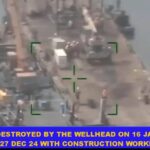By Augustine Ehikioya
Last week, for Nigeria, could be described as one of those black weeks for the giant of Africa.
A fatal and major sad incident started in the country in the first working day of last week at the former capital city of Lagos State.
The sad news of the collapse of an uncompleted 21 storey building in Ikoyi, Lagos State, went viral last week Monday afternoon. That has left many deaths and injured many surviving victims in its trail.

The last working day of last week also ended with another major tragedy in the current capital city of Abuja.
The working week was closed on Friday night with the sad news of kerosene tank explosion in a residential area of Kubwa, Abuja, precisely by the popular Kubwa Village Market. That again, has left behind many deaths, burnt and injured survivals, and sorrows for many residents of Abuja.
The main focus of this write up is on the later incident, x-raying the circumstances that led to the explosion and how to prevent future occurrence in any part of Nigeria, especially ensuring safety of lives and properties in residential areas.


The kerosene tank that caused the explosion was not really within the fenced Maitama Ultra Modern Market, Kubwa, mostly referred to as Kubwa Village Market.
A road separated the kerosene tank from the fenced Maitama Ultra Modern Market, Kubwa.
Behind the kerosene tank and its sides are buildings lined up along the road, with most of them having shops displaying and selling different items.
By the kerosene tank were also other petty traders displaying and selling their goods.
The traders and their wares mostly littered the two sides of the road, leaving very little space for vehicular and human movements.
The impact of the kerosene tank explosion lifted the tank on top one of the houses behind it.

The explosion happened so fast and unexpected that it might be very difficult to really ascertain its true cause.
Many of those that would have been able to say exactly how the explosion happened, must have been very close to the scene and are now among the dead or critically injured by the explosion.


So, when Security Watch Africa (SWA) visited the scene, there were many versions of the likely cause of the explosion from those not very close to the scene of the explosion when it happened last week Friday.
Just like what some government agencies believed, some of the residents of the area also thought the explosion could have been caused by electricity wire falling on the tank.
Others believe that the explosion could have been caused by likely storage of more inflammable product like petrol in the kerosene tank.
Some also suspected that it could have been caused by the woman frying and selling beans cake close to the tank.
Looking at the magnitude of the explosion, few others feared that it could have been caused by a bomb explosion.


If electric wire was found by the kerosene tank after the explosion, it’s possible the wire fell down to cause the fire and explosion or the wire came down due to the impact of the explosion.
Whatever the cause might have been, the fact remained that the tank storing inflammable product was placed in a residential and densely populated area, and also very close to electric cables.
Some early comers to the tank explosion scene spoke with Security Watch Africa.
Miss. Faith Daniel, who sells cable TV decoders in the area said “I rushed to the kerosene explosion site immediately after it happened. From what people are saying after the explosion, they said it was caused by kerosene.
“But from what I saw, I don’t think it was caused by kerosene. I have never seen where kerosene exploded like that. For me, I think it is petrol that was in that tank.
“After the explosion, a lot of people died. I saw dead bodies in the gutter, including pregnant women. Even the owner of the kerosene tank and her two grandsons died in the explosion.
“I will surely support government to remove those selling kerosene, petroleum products from residential areas or any place they could become risky to other people.
“It is a very risky business. If kerosene can explode like that, then what will the impact of petrol and gas be? So, let the government do something to stop sale of these risky products at homes where people stay.
“It is better we are safe, even if it means going very far away to buy the products. Safety of our lives is very important,” she stated.
Another eye-witness, Kabiru Abubakar, who operates Keke NAPEP in the Kubwa village area, said “I was very close-by when the explosion happened. Many people died including people selling items by the roadside, some people who came to patronize the traders and some people just passing by.
“Somebody used to fry akara here very close to the kerosene tank.
I think the explosion might have been caused by the person frying akara close to the kerosene tank or maybe it was the NEPA wire as some people are saying.
“I will support the government to move people selling such products far away from people. Its better to do that for lives to be saved.
“So many people were crying here on Friday when they saw dead bodies everywhere. It was a very sad night in Kubwa,” he said.
The Kubwa kerosene tank explosion is just one of the many explosions that have claimed many lives and injured many Nigerians in the past.

Sales of the useful but harmful products in residential areas are commonplace in every locality in Nigeria just like the Kubwa market scenario.
Big petrol stations and gas stations can also be found in many residential areas across the country.
Probably for selfish considerations, they are found in the hearts of many residential areas in the country due to non adherence to the master plans or town plans for the areas.
They are not just cited in residential areas, some of them are very close to high-tension wires that could spell doom if the wires develop faults and come down on the highly inflammable products.
Petty gas and kerosene retailers are today also found in almost every homes in the country.
These petty vendors also throw caution to the winds as many of them sell the gas and kerosene under high-tension and electrical wires.
Not caring that they are risking their lives and those of other residents for the little profit they intend to make. Many petty gas and kerosene retailers can also be found selling gas and kerosene very close to another person frying ‘akara’ (beans cake) or roasting corn with fire for sale.
The same scenario can be painted for petrol and engine oil petty retailers, who sell the products in jerrycan containers in many streets in the country.
This risky business is very rampant during fuel scarcity or when the pump price of petrol is projected to rise.
During such period, many people abandon their real businesses and become overnight petrol retail merchants.
After bribing their ways to buy the fuel in jerrycans at petrol stations during scarcity and long queues by vehicles, some of them end up storing the product in very risky places in their homes.
There is no doubt that Nigeria has good regulations on paper for the issues highlighted above, but the problem always has to do with implementation or enforcement.
It is really time to take action now in order to forestall future occurrence.
Although some government agencies have started demolition of some buildings on the other side of the road surrounding the fenced market in Kubwa, but a a holistic approach is needed to tackle this menace across the country.
The concerned government agencies and the relevant retailers unions should put the country first and take steps to safeguard the lives of Nigerians.
They should go beyond mere lips service in carrying out the assignment.
They should immediately step up and overhaul their enforcement taskforce teams to nip these problems in the bud and prevent these time bombs in every locality in Nigeria from detonating.
The concerned government agencies and the retailers unions’ leaders should be ready to be held responsible if such explosion from sale and storage of the inflammable products happens again in any residential area in the country.







